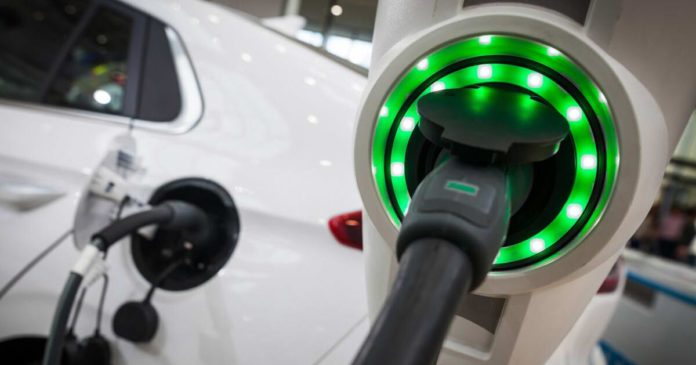Tax credits are not persuading Americans to buy an electric vehicle, citing higher costs than gasolinee-powered cars and a lack of charging stations.
The majority of Americans are not planning on purchasing an electric vehicle yet due to the higher cost and low supply of charging stations, according to a new poll.
Only about 40% of Americans said they would ditch their gasoline-powered cars for an EV in the future, a poll by The Associated Press-NORC Center for Public Affairs Research and the Energy Policy Institute at the University of Chicago found.
These are just some of the dogs looking for their ‘fur-ever’ homes. Each animal in this gallery is listed by their name and intake number. If you are interested in a specific animal, send an email to [email protected] and include the intake number. Click for more.Clayton County Adoptable Pets – Week of April 12
Generous tax credits of up to $7,500 from the federal government that were part of the Inflation Reduction Act have only swayed some buyers to purchase a new EV while other consumers don’t want higher monthly car payments.
But some EVs would not be eligible for the full amount, qualifying for only $3,750 or half of it. A smaller tax credit may not be sufficient to attract drivers to switch to an EV when a gasoline-powered car remains cheaper and has more models available.
The poll showed that currently only 8% of Americans said either they or someone living with them either bought or leases an EV. Another 8% said their household owns a plug-in hybrid vehicle.
The price of many EVs compared to gas-powered cars and trucks continues to be a major deterrent among potential buyers.
Ellen Gerstein, a digital, social, employee engagement head, told TheStreet that prices for new EVs were still too high. Supply chain issues have been a roadblock for automakers since the start of the pandemic, delaying the manufacture of many models. Waiting for a new EV was not an option, she said.
“Too expensive, and my friends who have bought electric have had to wait up to a year to get theirs,” Gerstein said. “I was able to get my new car in three weeks.”
The Biden administration has been an advocate of the switch to EVs since they emit lower emissions. President Joe Biden said the goal in the U.S. by 2030 is that 50% of all new cars sold would be electric in an effort to lower emissions and curb the impact of climate change.
Auto companies have also begun spending billions of dollars to build new factories in the U.S. to manufacture EVs and the batteries needed to power them.
The poll showed that 19% of consumers said it’s “very” or “extremely” likely they would buy an EV for their next vehicle. Another 22% said it’s somewhat likely.
Nearly every other American, or 47%, said they would not choose an EV, according to the poll.
The cost to manufacture EVs remains high. Through the end of 2022, the average price of an EV was was $61,488, compared with $49,507 for cars and trucks, according to Kelley Blue Book.
Six in 10 people said the high cost is a major reason they did not want to buy an EV while 25% said it was a minor factor.
The poll found that 16% of adults said spending more money for an EV was not a consideration in why they would not purchase one.
Natalie Dolphin, a vice president of marketing and investment relation, recently bought a Model Y from Tesla, its SUV option.
“Just purchased a Tesla Y,” she told TheStreet. “It would have been helpful to get a rebate on a higher model vs just on the lowest model available. Also there aren’t a lot of options in the market and supply is also low.”
The Biden administration said they have a plan to create 500,00 charging stations for EVs throughout the U.S. The 2021 IRA law includes $5 billion that will be used for building or upgrading chargers along highways.
At least 50% of the respondents said a major reason they would not make the switch is because there are not enough charging stations while 75% said the lack of them is one reason for not buying an EV.
Two-thirds of adults said they simply like gasoline cars more than EVs.
Younger drivers showed more interest in buying an EV – 55% of people under the age of 30 said they were somewhat likely to buy an EV while 49% of people who are 30 to 44 years old agree, compared with only 31% among people who are 45 and older.
Action Alerts PLUS offers expert portfolio guidance to help you make informed investing decisions. Sign up now.

